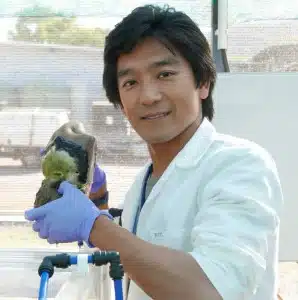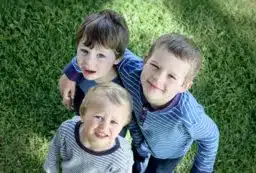
Dr Yui Sato is researching black band disease at the Australian Institute of Marine Science using DNA- and RNA-sequencing technologies, and has found a microbe from the primitive archaea group that may be critical to targeting the disease.
“I’ve discovered a very novel archaeal sequence from a lesion of this coral disease,” reveals Yui. “This archaeon may be playing a role in disease mechanisms.”
Little is currently known about the mechanisms by which black band disease forms a band of microbes on coral colonies and progressively kills the colony.
“Black band disease is particularly tricky to study because it’s not caused by one single microbial species,” explains Yui. “Instead, a group of many different microbes work together to cause the disease. We need to tease apart the complex mechanism of the disease to find out how to stop it killing our coral.”
Yui hopes that the researchers will be able to come up with a solution soon.
“My colleagues and I are testing an approach called ‘phage therapy’, says Yui. “We use special kinds of viruses called phages that specifically kill the particular bugs causing the disease.”
“For phage therapy to work, we need to know which bugs to target. My research is to find out what is the best target to fight against black band disease.”
Single-celled archaea are the third major domain that comprises all life on Earth, along with bacteria and ‘eukaryotes’ (plants, animals and fungi).
Yui presented his research at Fresh Science North Queensland 2015.
Fresh Science is a national program that helps early-career researchers find and share their stories of discovery. Almost 180 early-career researchers nominated for Fresh Science 2015, and this was the first year it was held in Townsville. Fresh Science North Queensland was held at James Cook University (training) and Molly Malone’s hotel (public challenge event).
Fresh Science North Queensland was supported by James Cook University and the Australian Institute of Marine Science.
Contact: Yui Sato, Australian Institute of Marine Science, +61 7 4753 4122, y.sato@aims.gov.au


 Fresh Science is on hold for 2022. We will be back in 2023.
Fresh Science is on hold for 2022. We will be back in 2023.